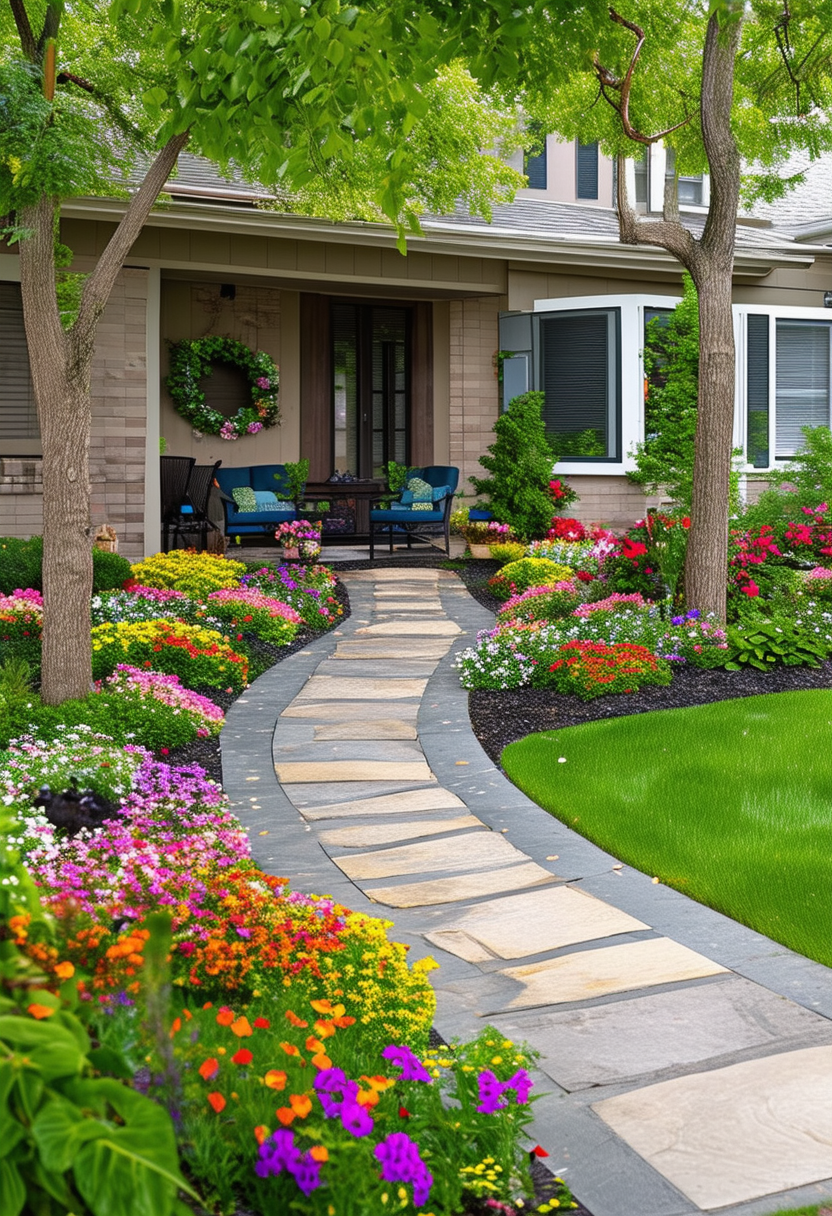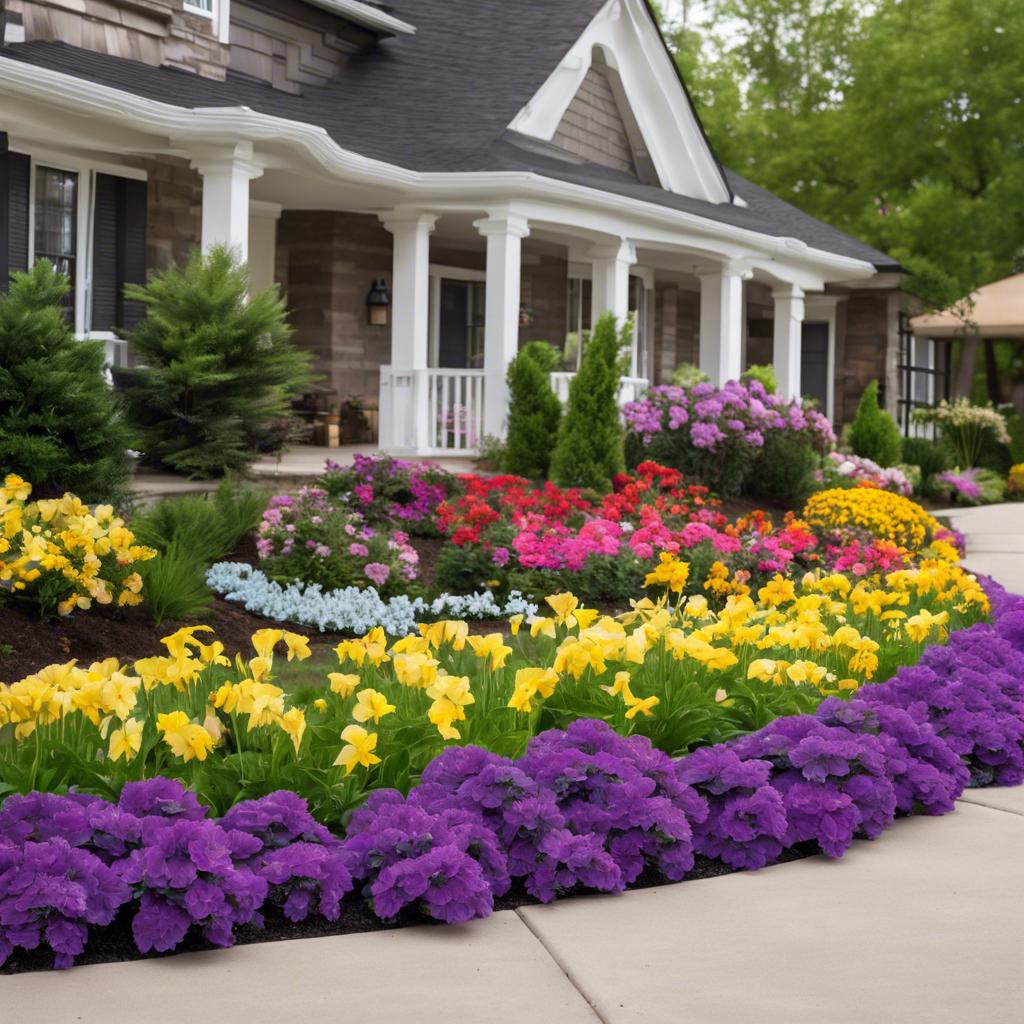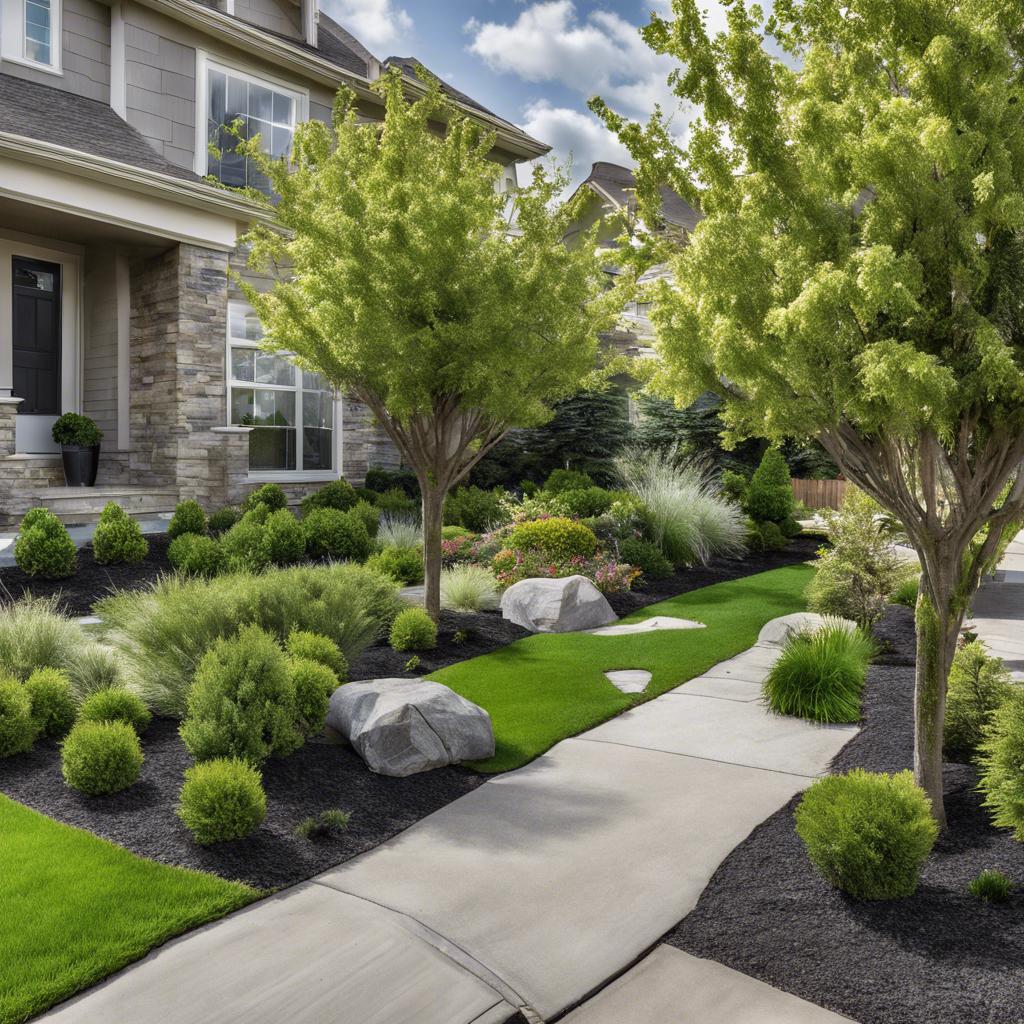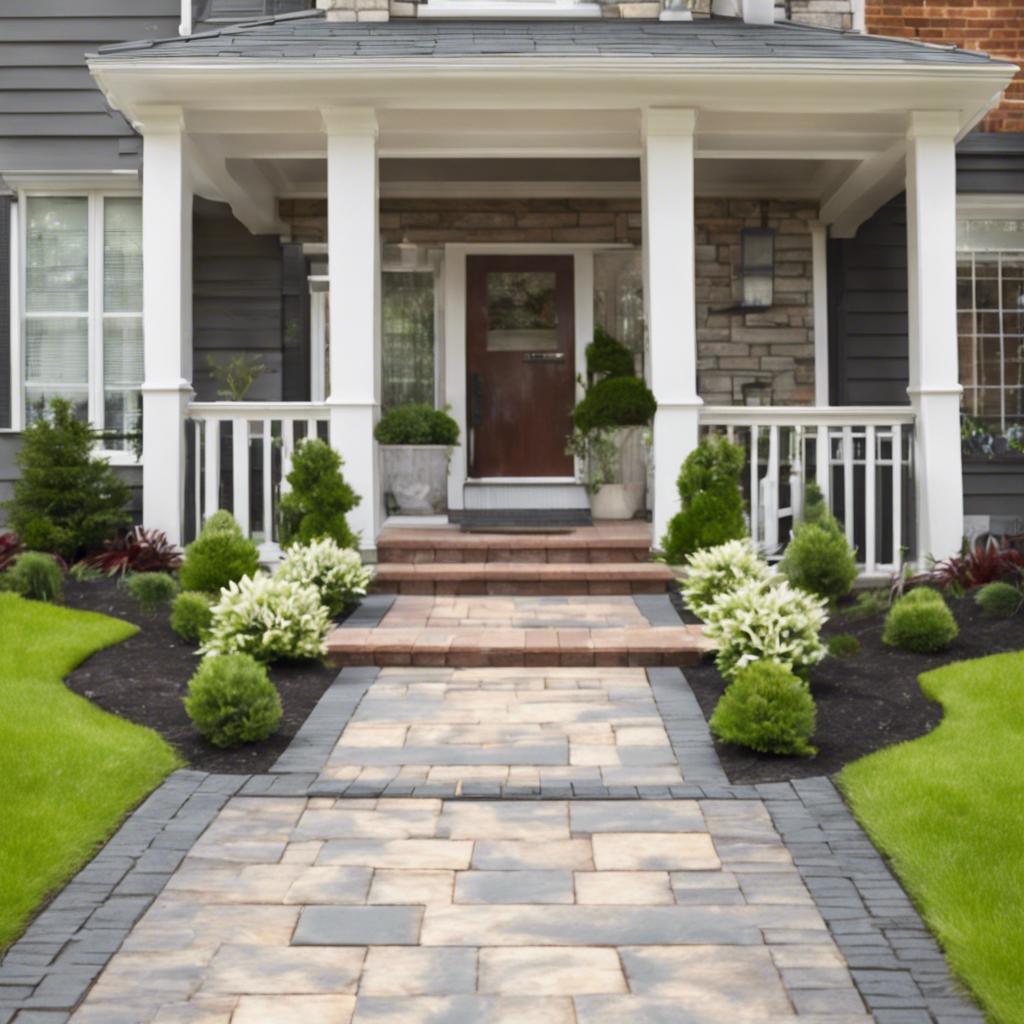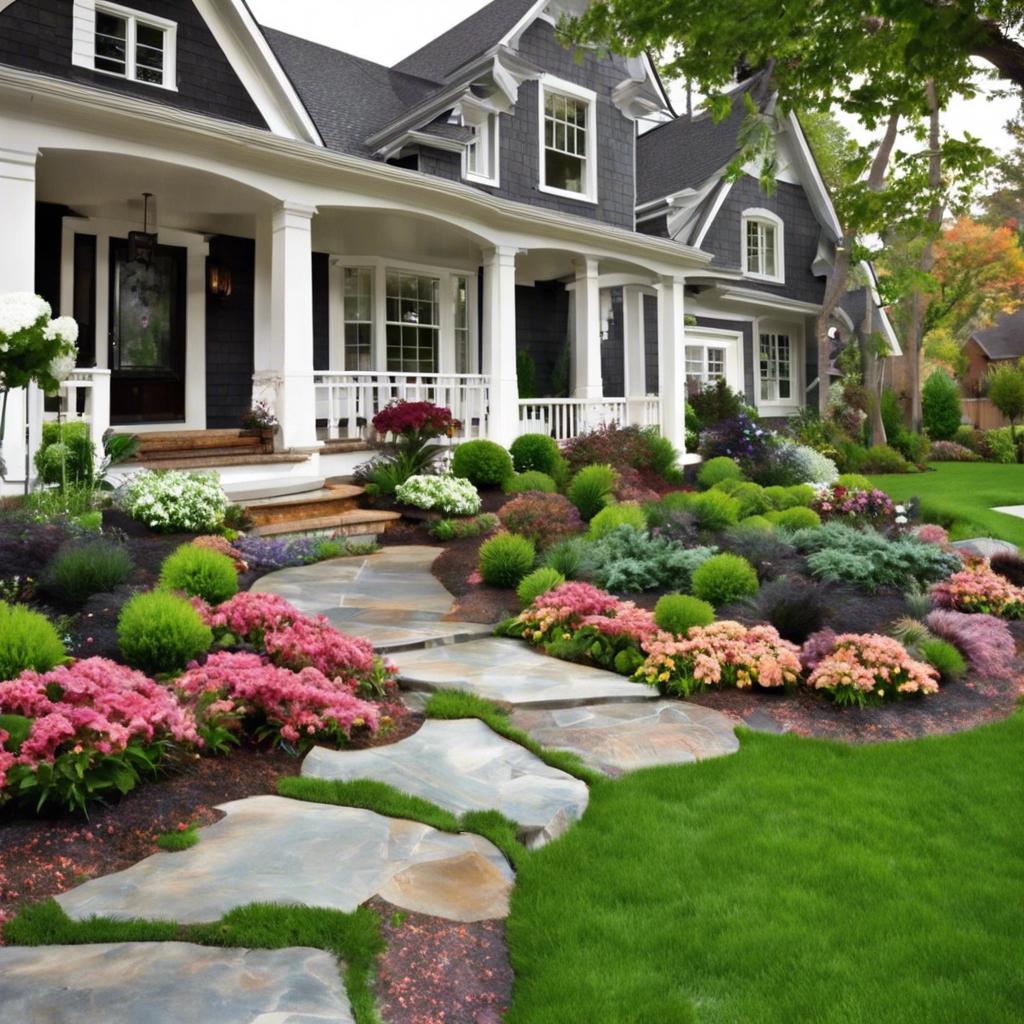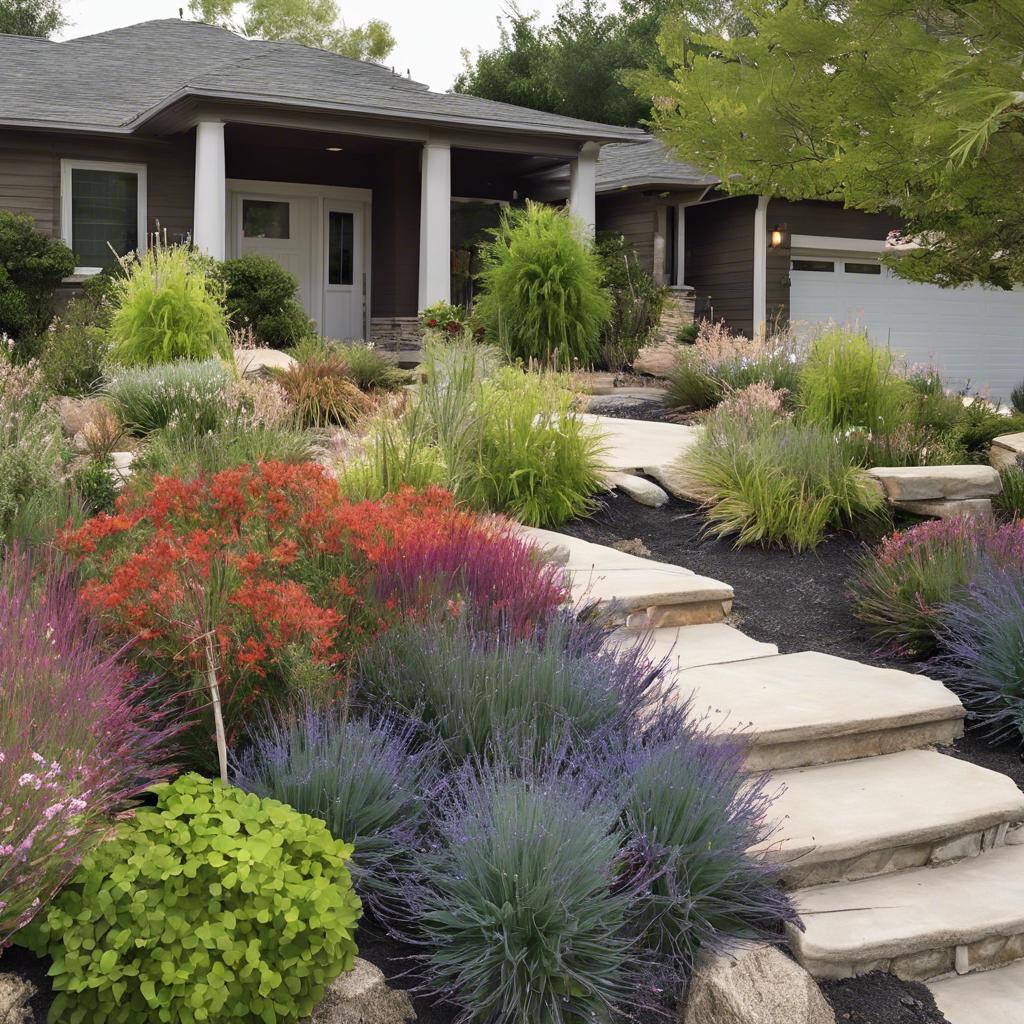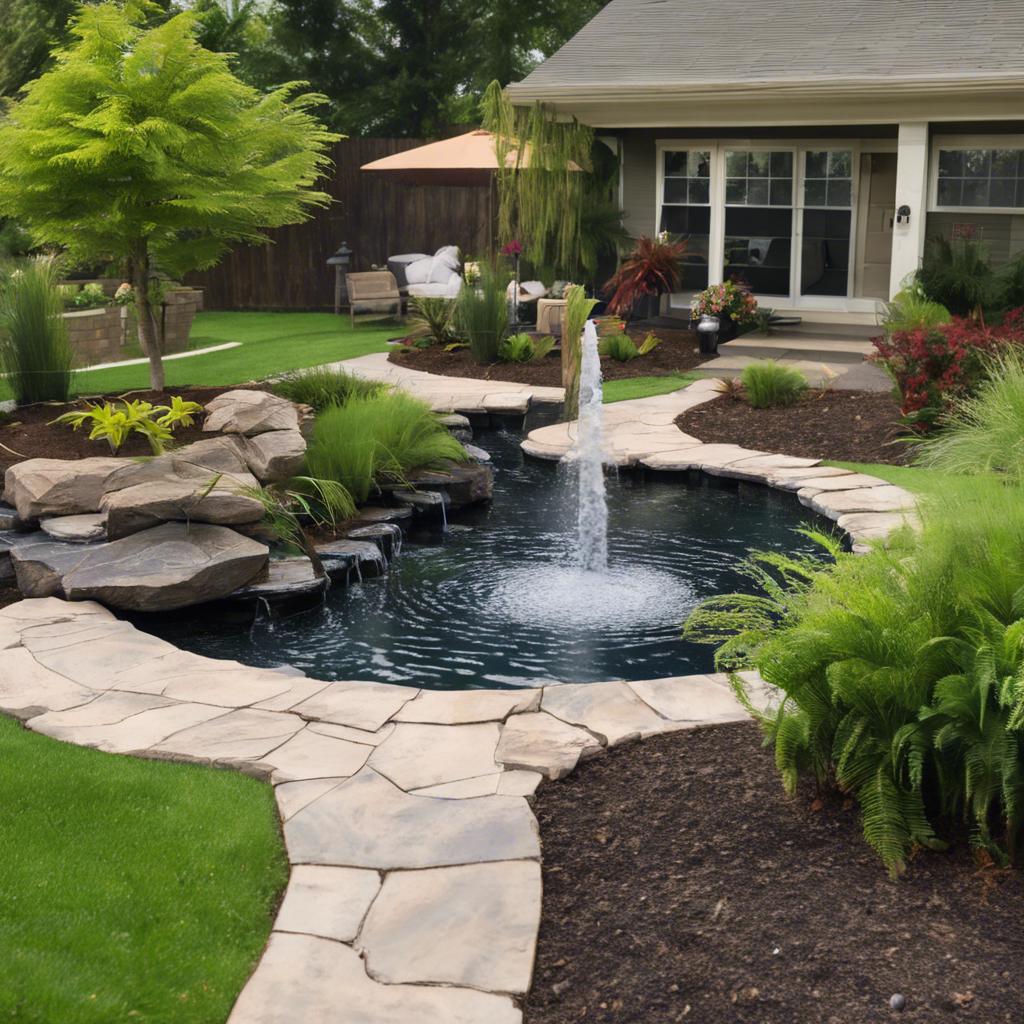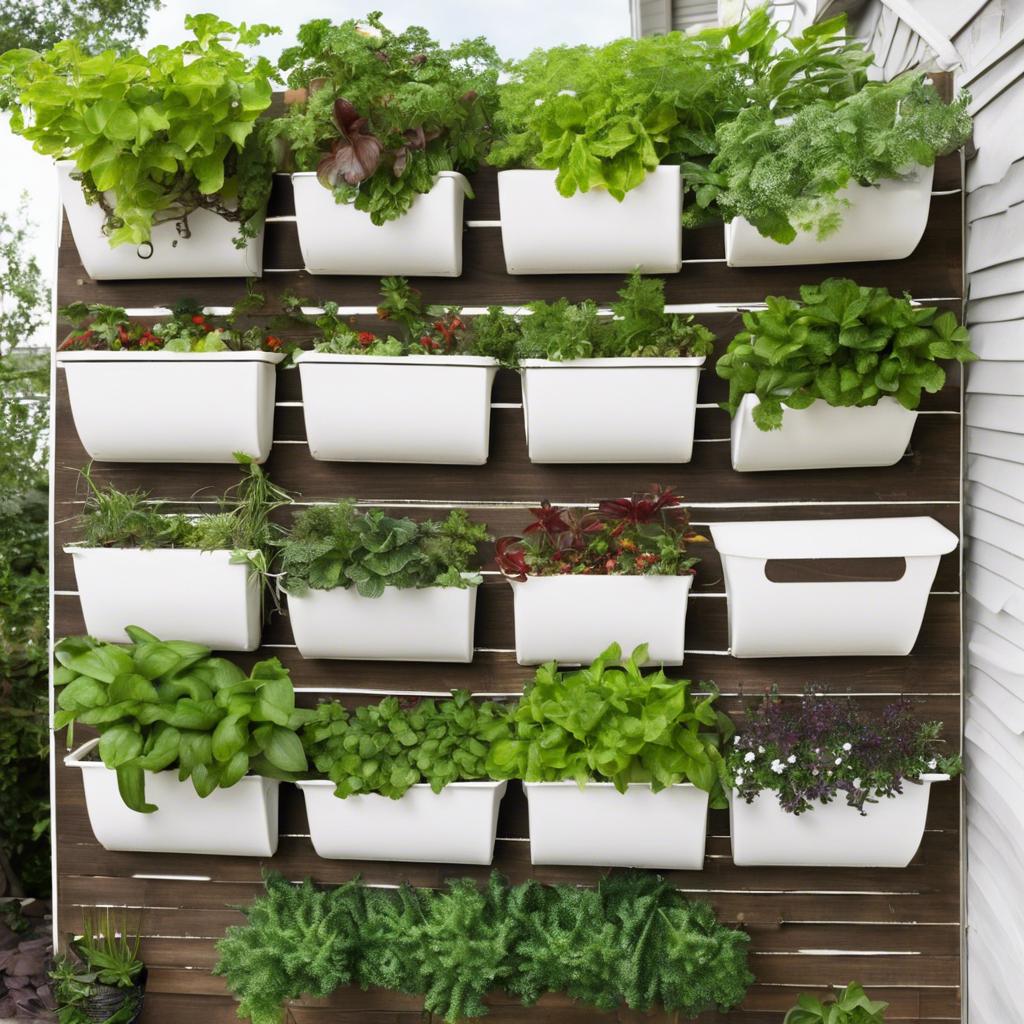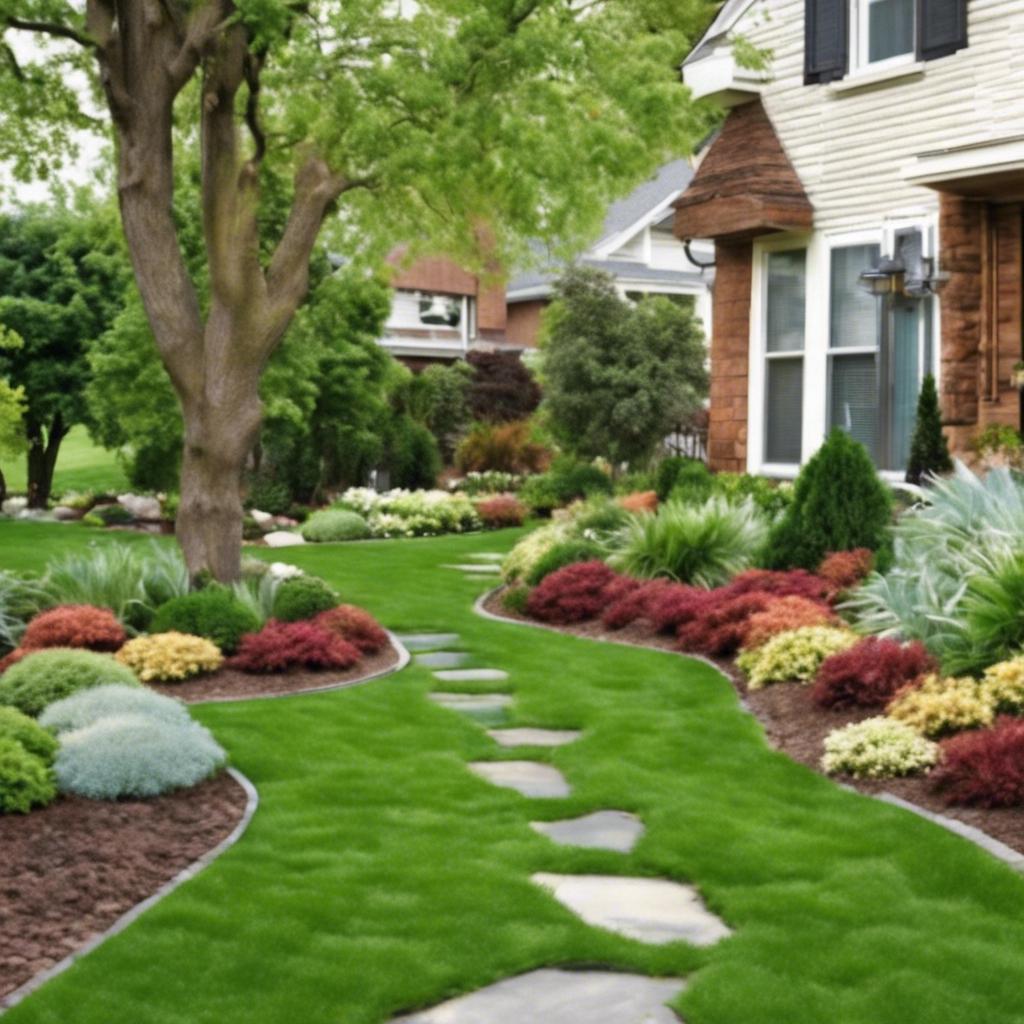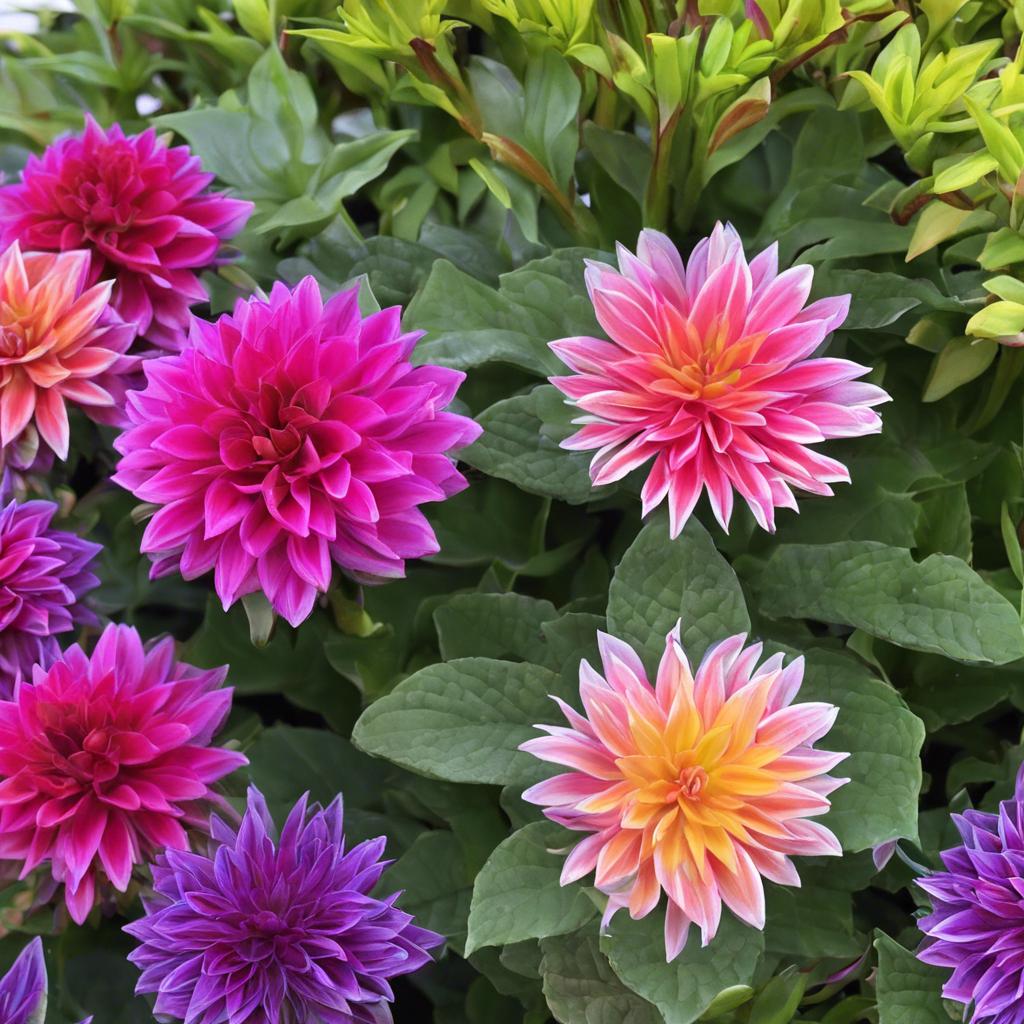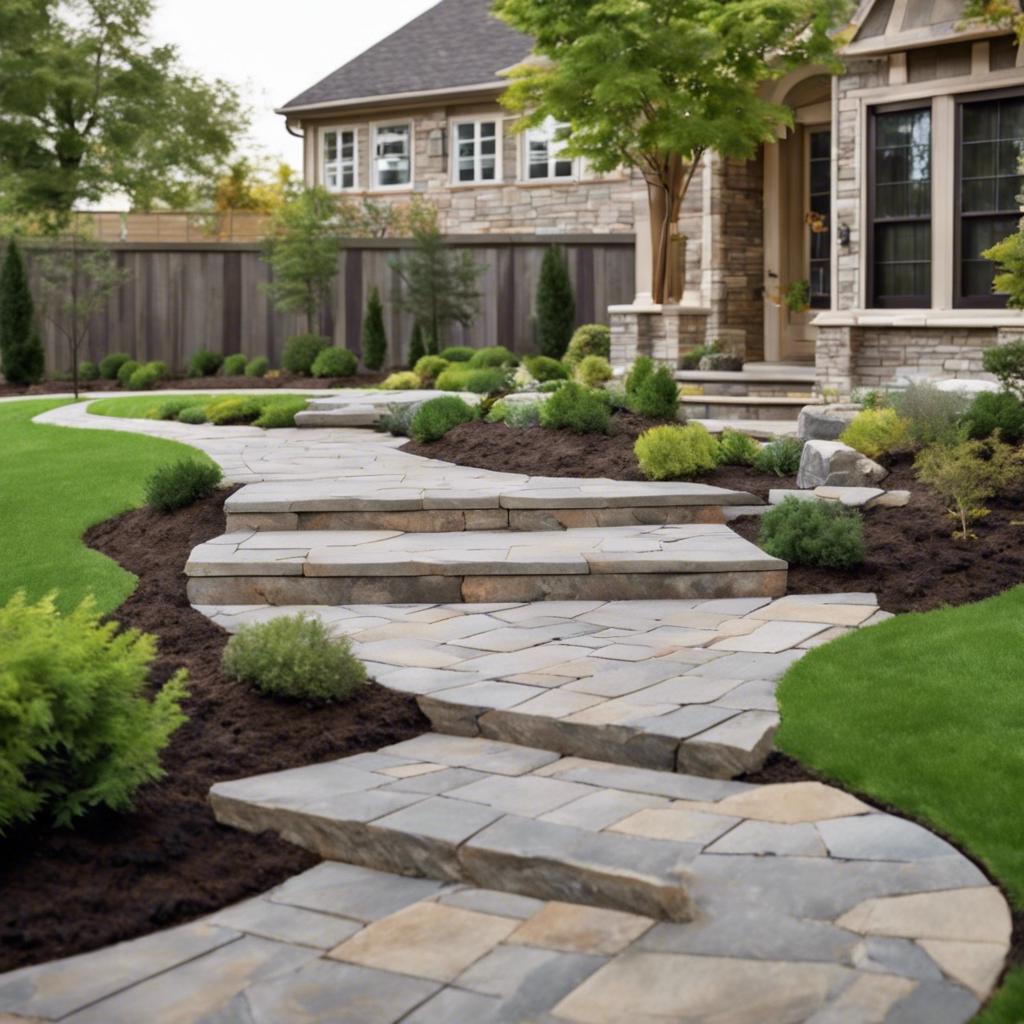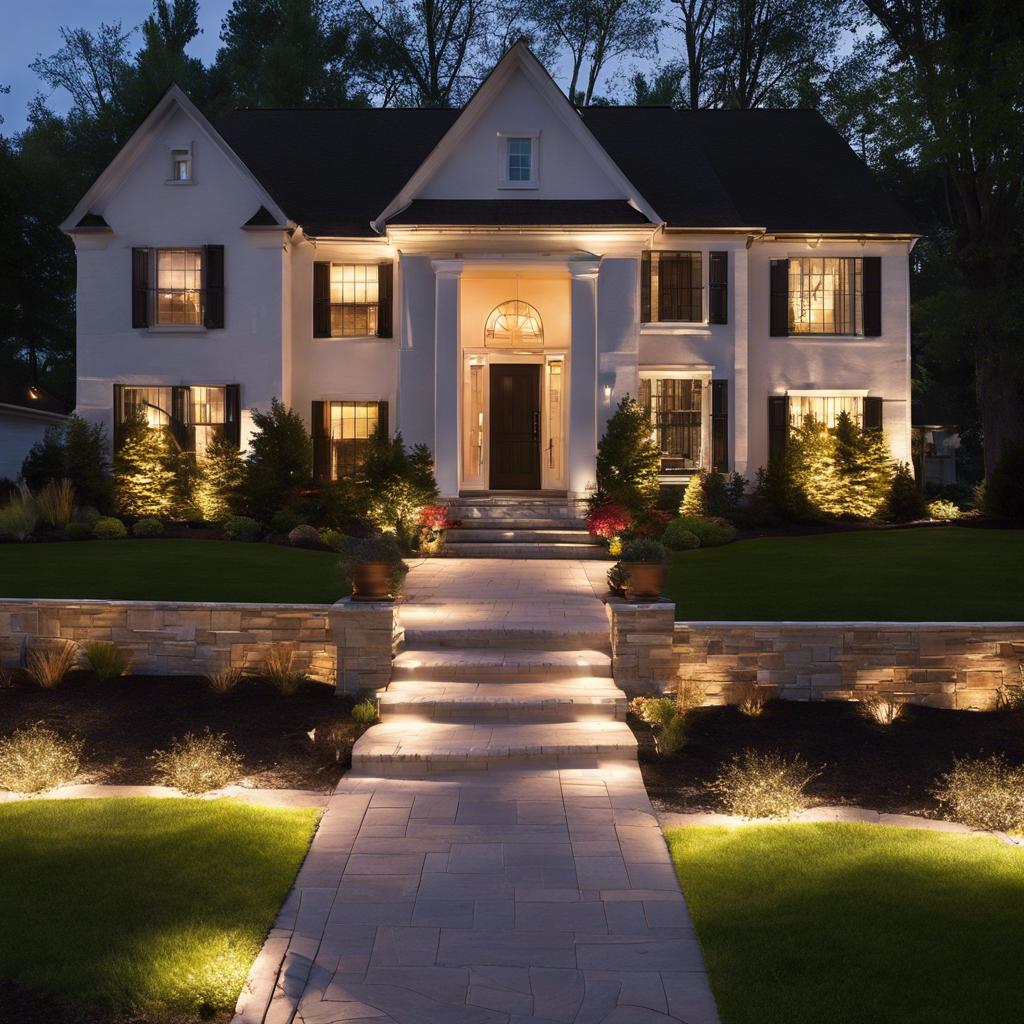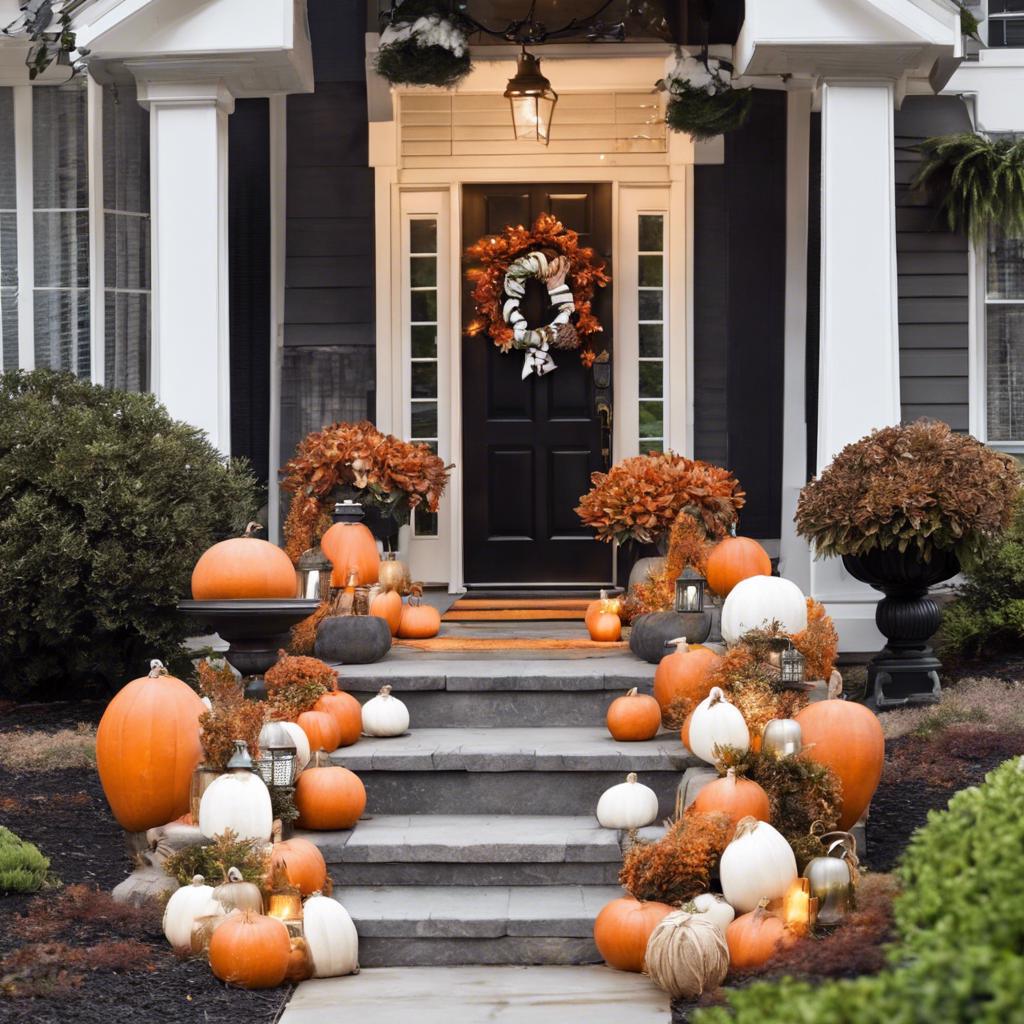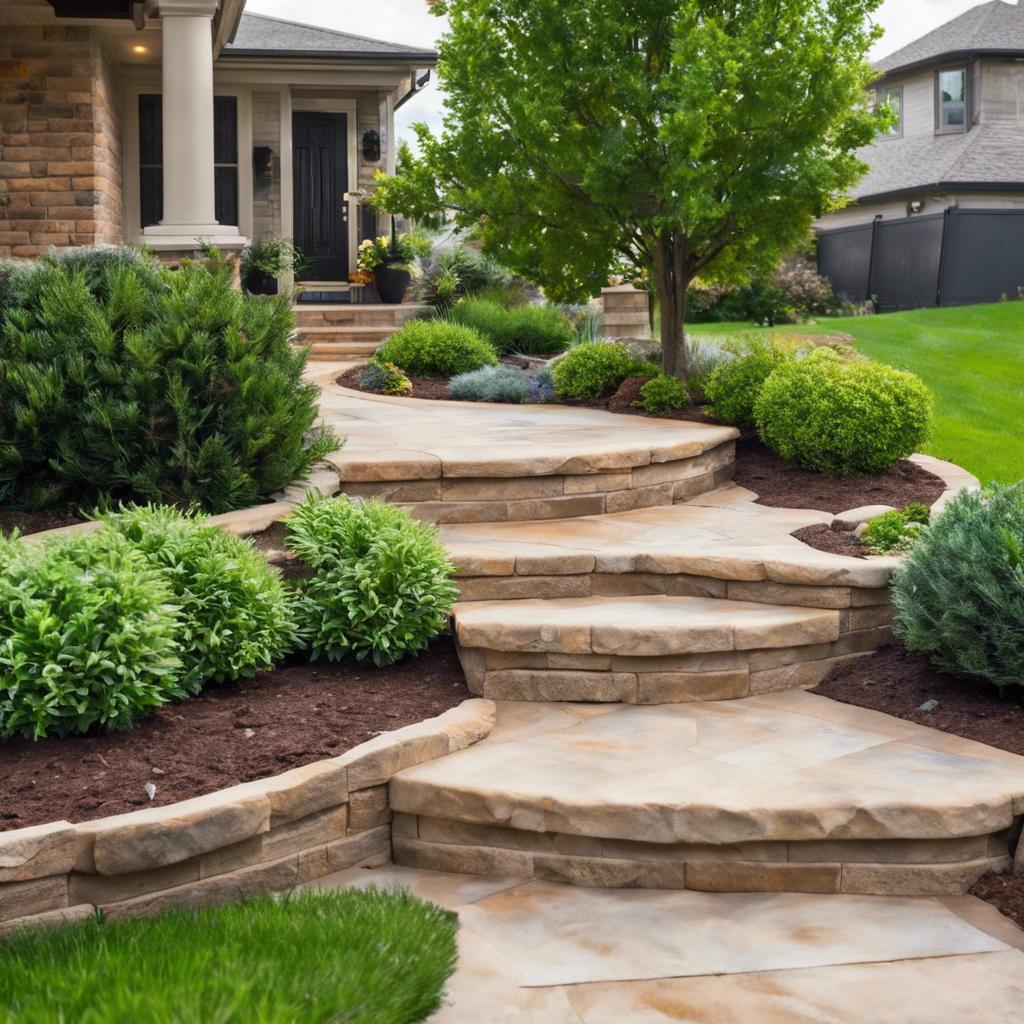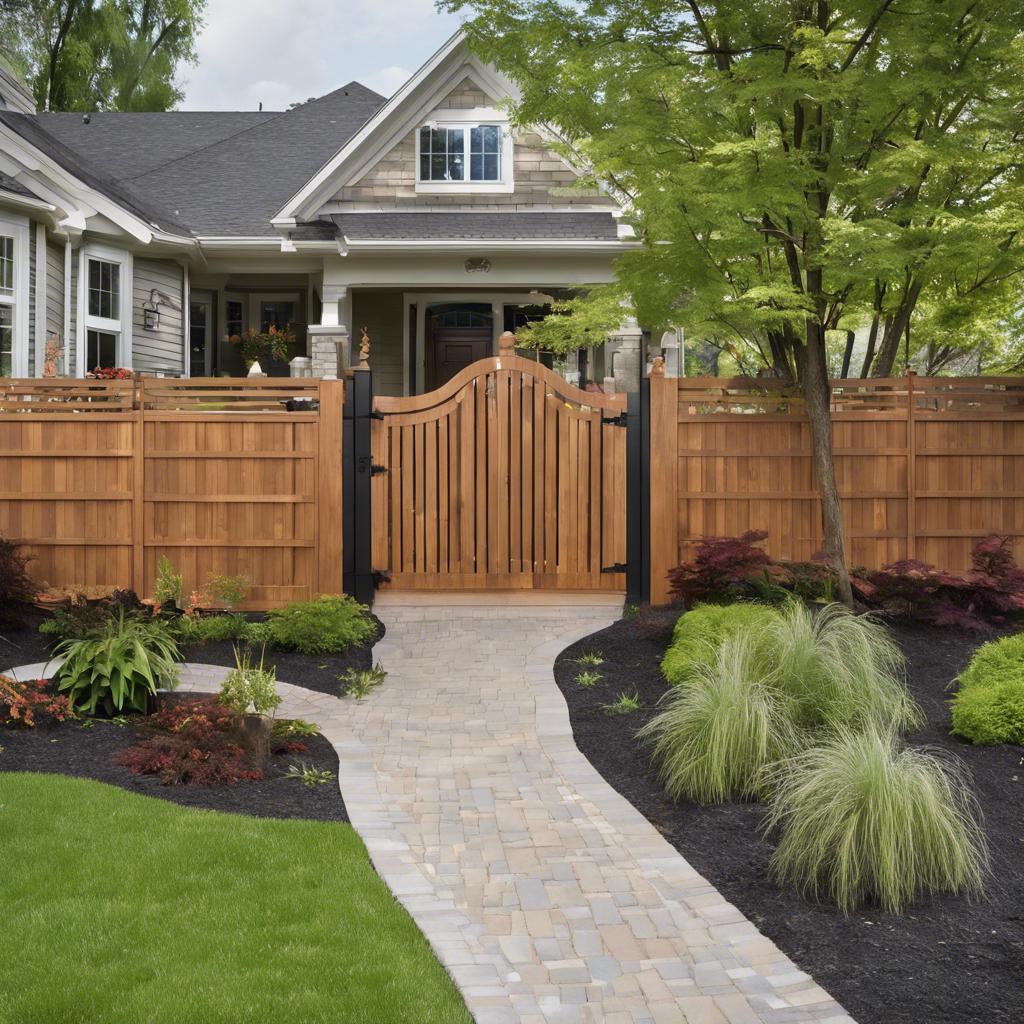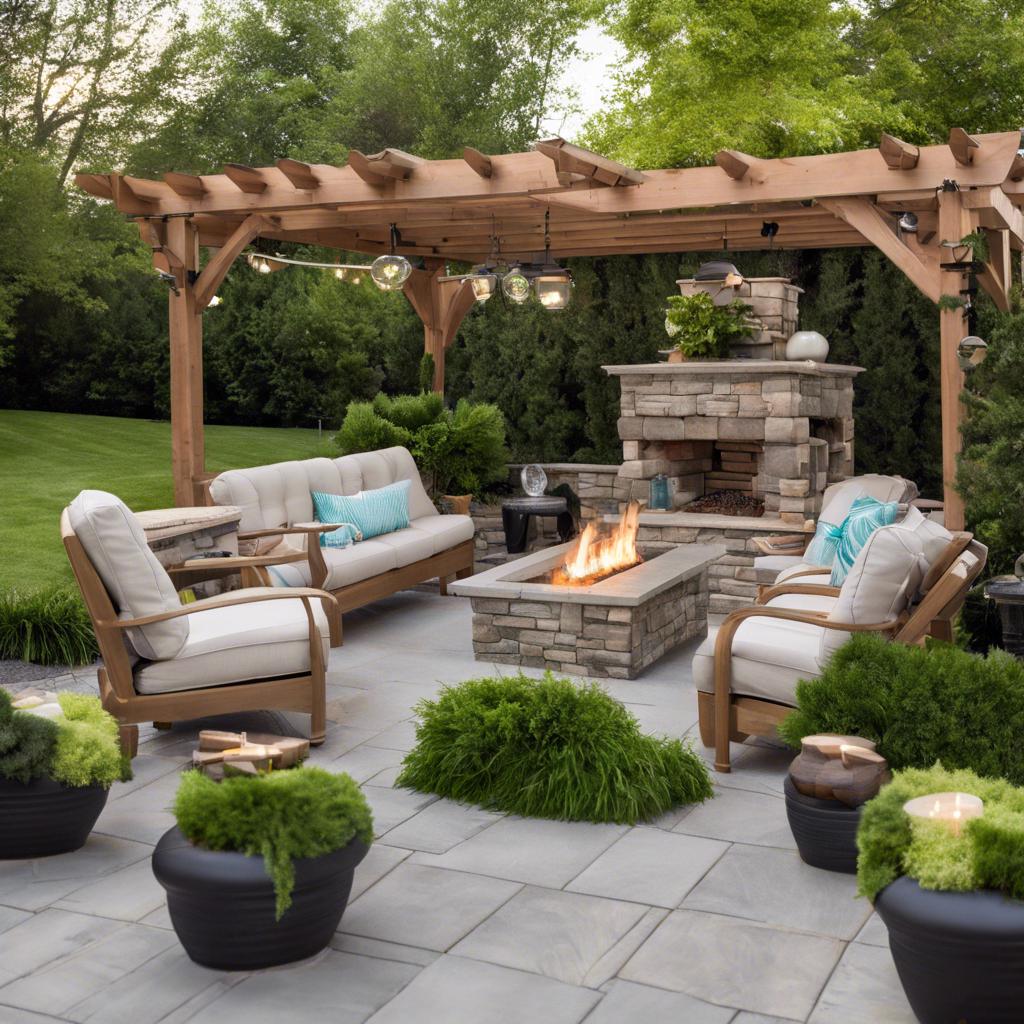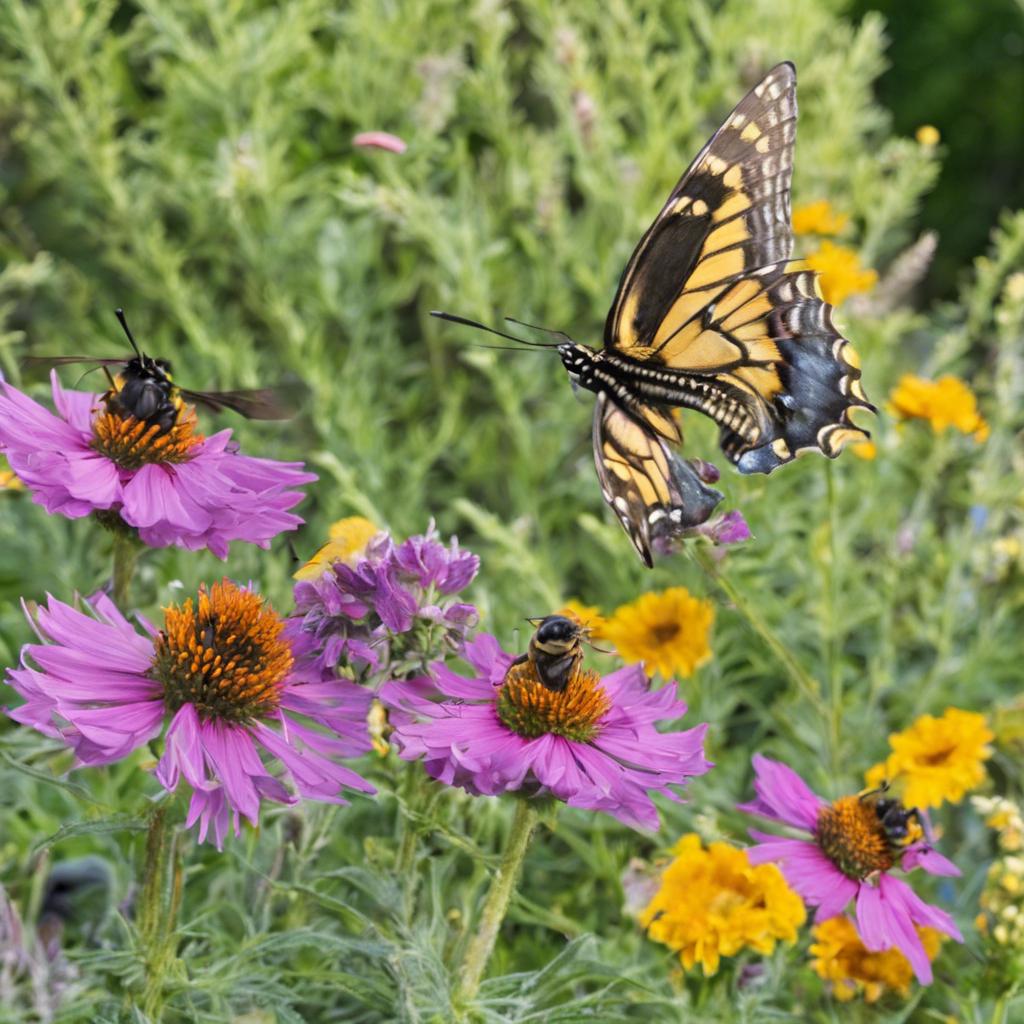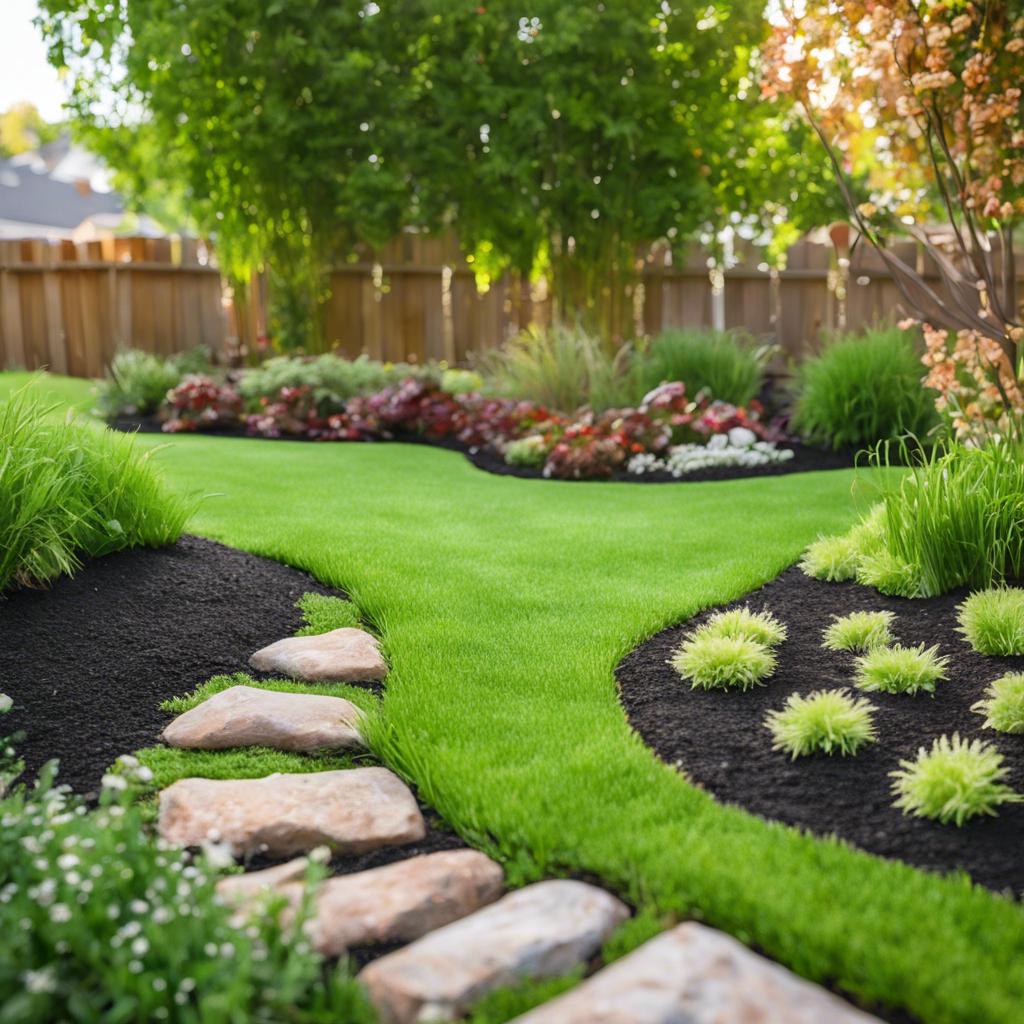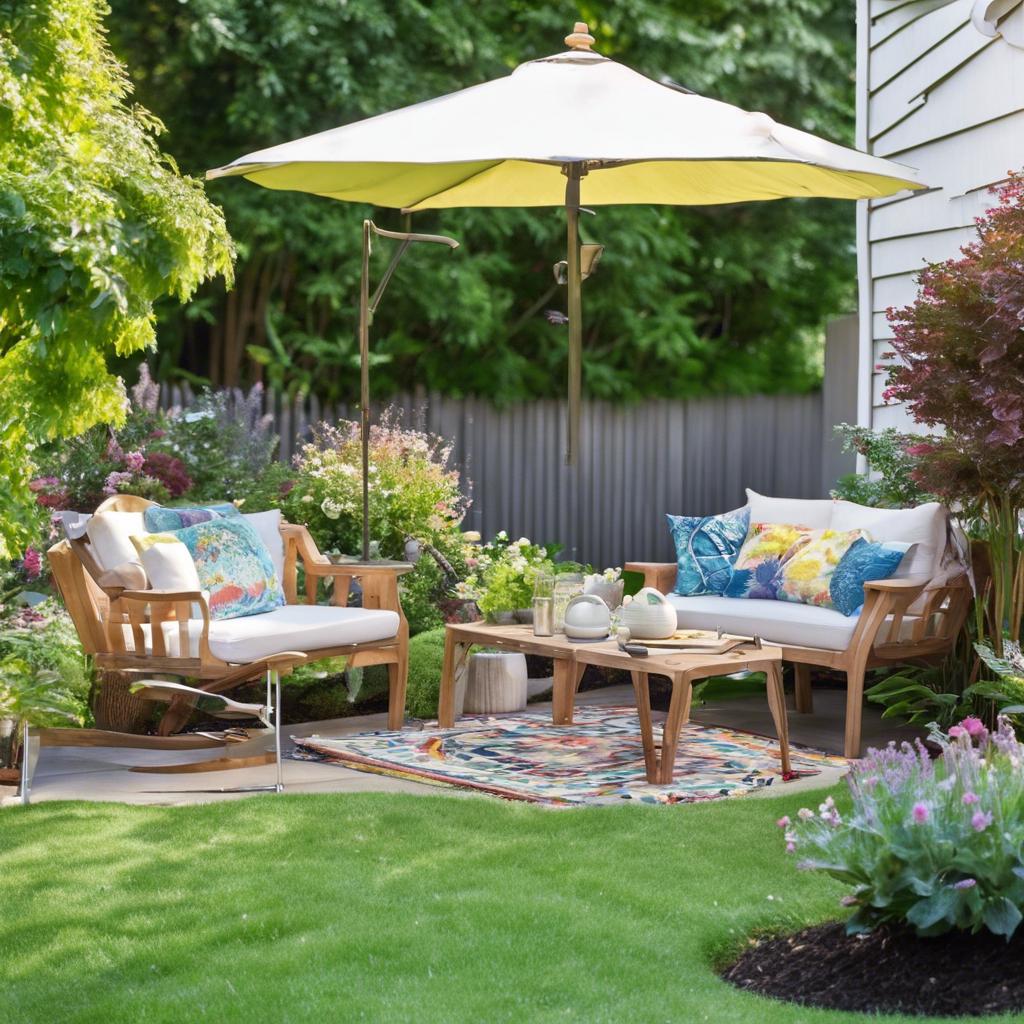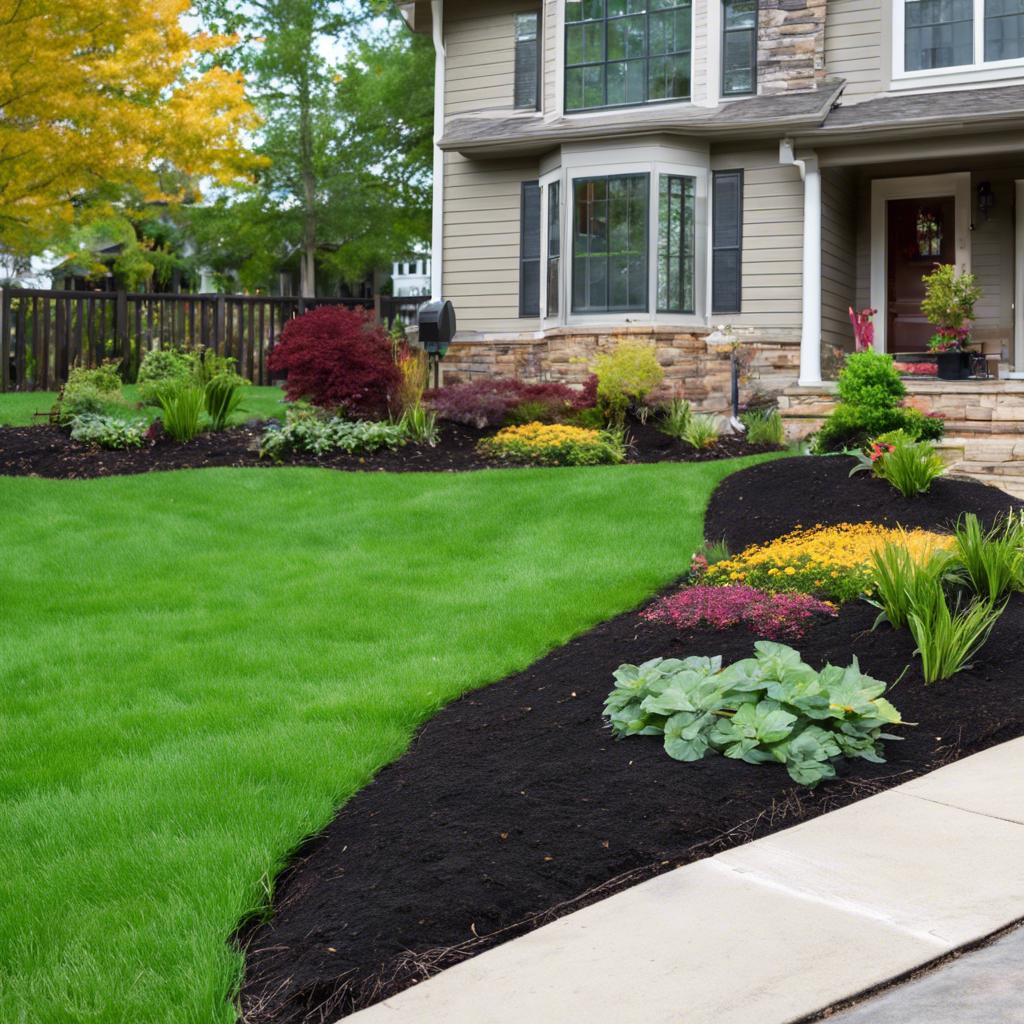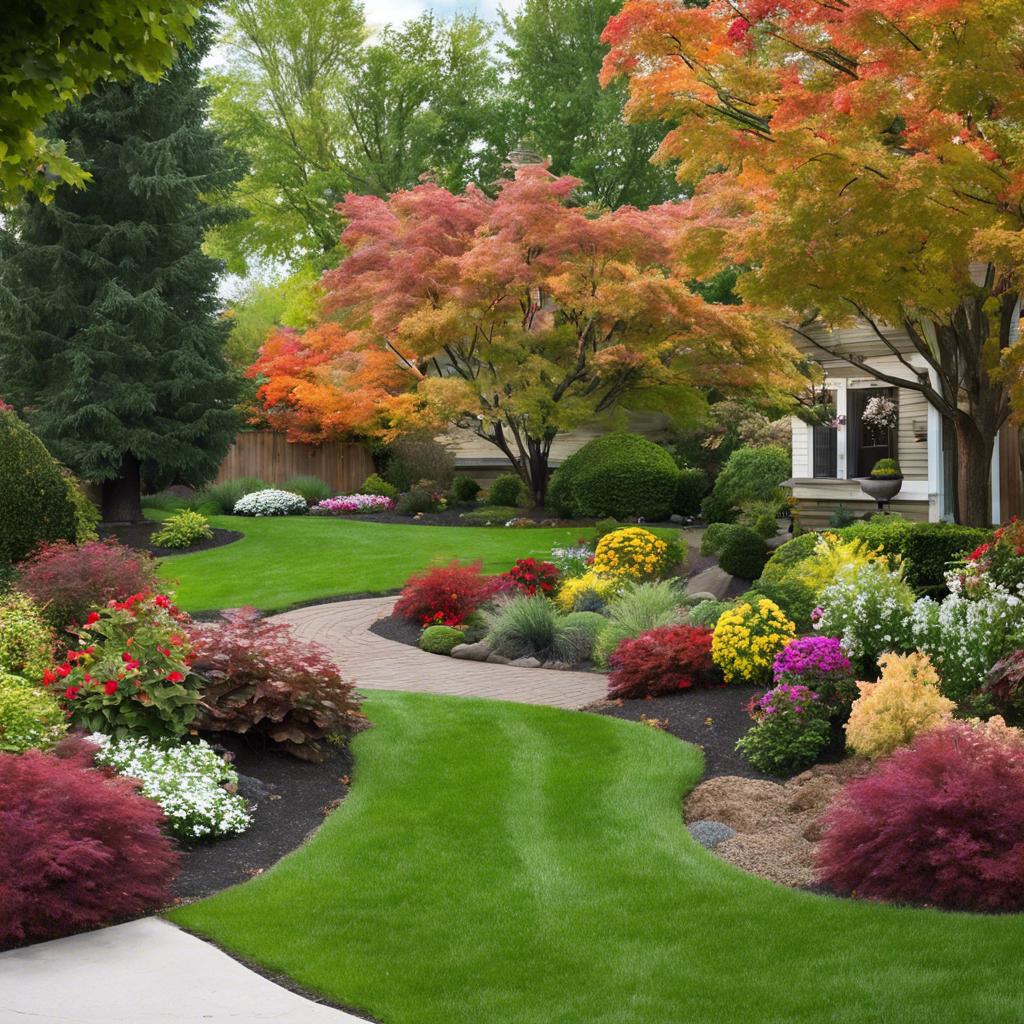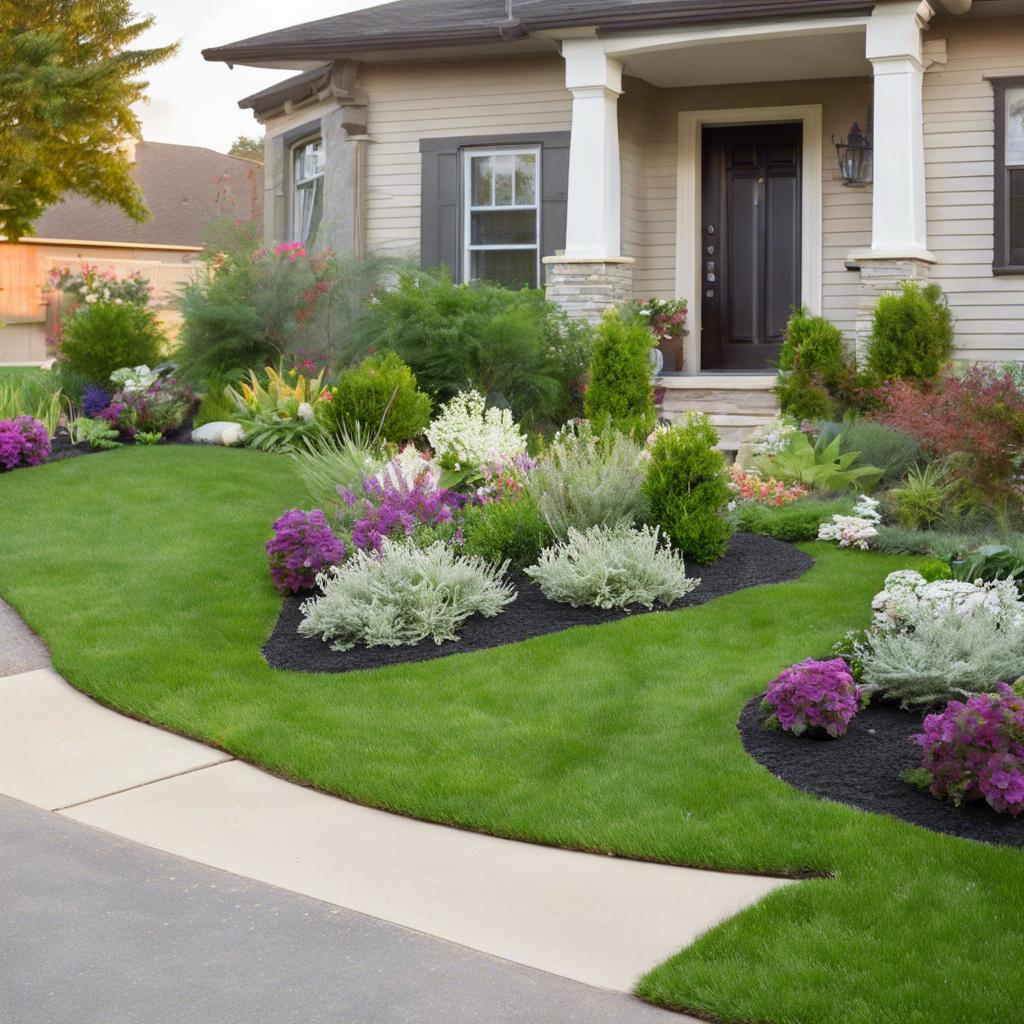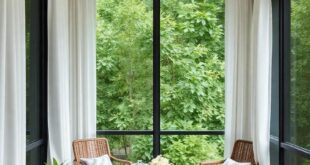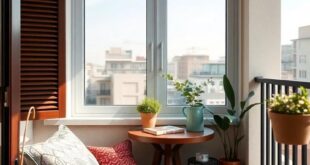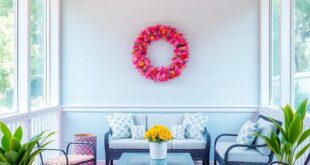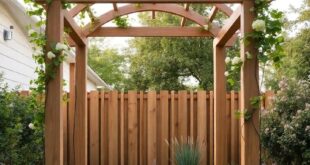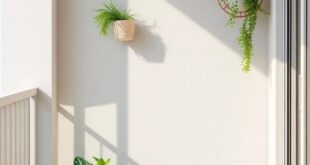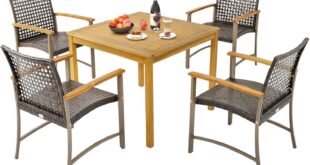Your home’s exterior is the first impression you share with the world, and what better way to make it unforgettable than by enhancing your curb appeal? The front yard serves as a blank canvas, ready to be transformed into a stunning showcase of beauty and creativity. Whether you are looking to rejuvenate a tired landscape or simply want to give your property a fresh new look, there are countless landscaping ideas that can breathe life into your outdoor space. From vibrant flower beds to charming pathways, each element can be thoughtfully designed to reflect your personal style while increasing your home’s value. In this article, we will explore a variety of front yard landscaping ideas that will inspire you to roll up your sleeves and create a welcoming atmosphere that beckons visitors and delights passersby alike. Let’s dig into the world of curb appeal and discover how you can turn your front yard into a picturesque entryway that stands out in the neighborhood.
Transform Your Front Yard with Vibrant Flower Beds
- Petunias – For their striking colors and long blooming period.
- Daylilies – Resilient and low-maintenance.
- Lavender – A fragrant addition that attracts pollinators.
- Daisies – Classic blooms that add cheerfulness.
- Marigolds - Known for their vibrant hues and pest-repelling properties.
To maximize the aesthetic appeal, layer the flower beds in height, placing taller plants in the back and shorter ones in the front. This adds depth and creates a lush, garden-like atmosphere. Incorporate hardscape elements like decorative stones or wooden borders to define your beds and enhance the overall design. Use a table to visualize the ideal layout for your flower beds:
| Plant Type | Height | Bloom Season | Sun Requirements |
|---|---|---|---|
| Petunias | 12-18 inches | Spring to Frost | Full Sun |
| Daylilies | 24-36 inches | Summer | Full Sun |
| Lavender | 12-30 inches | Summer | Full Sun |
| Daisies | 12-30 inches | Spring to Fall | Full Sun to Partial Shade |
| Marigolds | 6-36 inches | Spring to Frost | Full Sun |
Enhancing Front Yard Aesthetics with Strategically Placed Trees
One of the most impactful ways to elevate the charm of your front yard is by incorporating trees that serve both functional and aesthetic purposes. Select diverse species based on their foliage, shape, and seasonal changes to create a dynamic landscape that captures the essence of nature year-round. For instance, placing a flowering tree near the entrance not only draws the eye but also creates a welcoming atmosphere. Trees with distinct bark or unique branching patterns can introduce texture and depth, enhancing the overall appeal of your curbside view. Consider the height and spread of the trees; strategically positioned can provide privacy without overwhelming the space. Below are some excellent tree choices for front yard landscapes:
- Japanese Maple: Showcases stunning foliage in spring and fall.
- Crape Myrtle: Features vibrant blooms during summer months.
- Evergreen Trees: Offers year-round foliage and adds privacy.
- Magnolia: Known for its large, fragrant flowers in late spring.
To maximize the curb appeal, consider planting trees in clusters or along pathways, creating focal points that guide the eye through your landscape. Layering trees of varying heights can create a sense of depth, inviting onlookers to explore the garden further. Limitations such as space and sunlight should guide your choices, ensuring that each tree thrives in its designated spot. For instance, a lower canopy tree works magnificently next to taller varieties, giving the space a lush feel without overcrowding. To illustrate the potential arrangements, refer to the table below for suggested tree pairings that harmonize beautifully together:
| Tree Pairing | Aesthetic Benefit |
|---|---|
| Japanese Maple & Crape Myrtle | Contrasting foliage and blooms create seasonal interest. |
| Pines & Magnolias | Year-round greenery paired with elegant flowers. |
| Birch & Dogwood | Striking bark against delicate blooms offers visual contrast. |
Creating a Welcoming Pathway for Your Front Yard
Creating an inviting entrance to your home begins with a thoughtfully designed pathway. Start by selecting materials that complement your home’s architecture, such as natural stone, bricks, or decorative pavers. Consider incorporating curved lines to give your walkway a more organic feel, rather than straight edges that can appear harsh. Enhance the pathway by lining it with lush plantings that bloom seasonally. You might choose low-maintenance perennials or vibrant annuals, depending on your preference and the climate. To add life to the design, intersperse solar-powered lights along the edges to illuminate the way after dark, creating both safety and ambiance.
In addition to flowers, think about integrating a few hardscape elements to break up the greens and enhance visual interest. For example, you could add a small seating area with a couple of benches or chairs along the path, ideal for enjoying sunny afternoons. Consider a small table as well, creating a perfect nook for coffee breaks. A water feature, like a mini fountain or a birdbath, can attract wildlife and provide soothing sound. Pair these elements with decorative stones or a pebble border to finish off the look. Here’s a simple table to inspire the layout of your pathway:
| Pathway Element | Impact |
|---|---|
| Natural Stone | Timeless and elegant |
| Solar Lights | Illuminates safety |
| Seating Area | Invites relaxation |
| Water Feature | Enhances tranquility |
| Decorative Plants | Adds color and texture |
Front Yard Landscaping Ideas for Year-Round Appeal
To enhance the focal points of your landscaping, think about introducing elements such as decorative stones or garden sculptures that draw the eye. Create inviting pathways or patios using permeable pavers that allow water to seep through, reducing runoff. Consider planting native plants that thrive in your climate, ensuring lush growth while supporting local wildlife. Below is a simple table showcasing some excellent year-round plant choices:
| Season | Plant Type | Example Plants |
|---|---|---|
| Winter | Evergreens | Boxwood, Holly |
| Spring | Flowering Bulbs | Tulips, Daffodils |
| Summer | Perennials | Daylilies, Echinacea |
| Autumn | Seasonal Annuals | Mums, Pansies |
Incorporating Native Plants in Your Front Yard Design
Incorporating native plants into your front yard not only enhances the aesthetic appeal but also promotes biodiversity and environmental sustainability. Native species are adapted to the local climate and soil, requiring less water and maintenance than non-native alternatives. By choosing plants such as purple coneflower, bee balm, and goldenrod, you can create a stunning palette that changes with the seasons while attracting beneficial pollinators like bees and butterflies.
When designing your landscape, consider layering these plants for depth and visual interest. Using a combination of heights and colors establishes an inviting atmosphere. You might implement features such as:
- Groundcovers to fill in spaces between larger plants
- Pathways lined with flowering perennials
- Anchoring shrubs for structure and backdrop
To give you a clearer picture of how to select the right plants for your environment, refer to the table below:
| Plant Name | Sun Requirement | Soil Type |
|---|---|---|
| Purple Coneflower | Full Sun | Well-drained |
| Bee Balm | Partial Sun | Moist, Rich |
| Goldenrod | Full Sun | Dry to Moist |
Designing a Front Yard Oasis with Water Features
Integrating water features into your front yard can elevate your space into a tranquil oasis, enhancing both aesthetics and ambiance. Consider adding elements such as fountains, ponds, or waterfalls to create a soothing atmosphere. These features not only attract wildlife, like birds and butterflies, but also provide a refreshing focal point that draws the eye. When designing, think about the size and scale of your water feature in relation to your home and landscape. Positioning them near pathways or seating areas can maximize their impact, allowing you to enjoy the gentle sounds of flowing water while you relax outdoors.
To ensure your water feature complements your overall landscape design, include surrounding plants and accessories that harmonize with the natural elements. Opt for a mix of soft grasses, vibrant flowers, and native shrubs to frame your water feature beautifully. Create a balanced look by using a variety of textures and colors—consider planting water lilies or lotus in ponds for added visual interest. Here’s a simple overview of complementary plant choices you can incorporate:
| Water Feature Type | Best Plant Companions |
|---|---|
| Fountain | Hostas, Ferns, Caladium |
| Pond | Water Lilies, Pickerel Rush, Cat Tails |
| Waterfall | Japanese Water Iris, Blue Flag Iris, Lobelia |
Maximizing Space in Your Front Yard with Vertical Gardening
Elevate your front yard’s aesthetics and functionality by incorporating vertical gardening techniques. This innovative approach allows you to maximize space while adding layers of beauty and greenery to your landscape. Consider installing trellises, vertical planters, or wall-mounted hanging pots to create a stunning focal point. Not only do these structures save valuable ground space, but they also provide a canvas for an array of plants that can flourish in diverse settings, from flowers to vegetables.
To get started, choose plants that thrive in your region and can best adapt to vertical growth. Some ideal options include:
- Climbing roses for a fragrant, colorful display
- Herbs like basil and mint for easy access and culinary delight
- Strawberries, which can cascade beautifully over the sides of containers
- Succulents for a modern, low-maintenance touch
Additionally, combining different textures and elevations can create a captivating visual effect, drawing the eye upward. A well-thought-out vertical garden not only enhances curb appeal but also encourages a thriving micro-ecosystem right at your doorstep.
Sustainable Front Yard Practices: Eco-Friendly Landscaping
One effective way to make your front yard more sustainable is to implement rain gardens and permeable paving. Rain gardens allow rainwater to soak into the ground rather than running off into storm drains, promoting natural filtration and reducing water pollution. Permeable paving materials, like porous concrete or gravel, let rainwater infiltrate, decreasing runoff and recharging groundwater supplies. Here’s a simple table comparing traditional landscaping versus sustainable options:
| Traditional Landscaping | Sustainable Alternatives |
|---|---|
| High water consumption | Native plants requiring less water |
| Chemical fertilizers and pesticides | Organic mulch and composting |
| Impervious surfaces leading to runoff | Permeable paving solutions |
| Limited wildlife habitat | Pollinator-friendly flowers and shrubs |
Using Color Theory to Inspire Your Front Yard Plant Choices
Leveraging color theory can dramatically transform the aesthetics of your front yard, infusing life and personality into your landscaping choices. By understanding the relationship between different colors, you can create a harmonious and visually appealing environment. Consider using cool colors like blues and purples, which evoke a sense of calm and tranquility. These hues can be ideal for creating a serene space while also enhancing your home’s contemporary architectural features. Conversely, warm colors like reds and yellows can inject energy and vibrancy, making your front yard the inviting focal point of your neighborhood.
When selecting plants, pay attention to the interplay of colors with seasonal shifts and architectural elements. Grouping plants in analogous color schemes—such as shades of orange, yellow, and red—can cultivate a cohesive look, whereas complementary colors like blue and orange will create striking contrast and visual interest. Here’s a simple guide to help you choose plants based on their color interaction:
| Plant Type | Color Family | Best Pairing |
|---|---|---|
| Lavender | Blue/Purple | Yellow Coreopsis |
| Marigolds | Yellow/Orange | Pansies (Purple) |
| Hostas | Green | White Astilbe |
Additionally, consider the texture and form of the plants, which can add another layer of visual interest. Incorporating elements such as grasses for height or succulents for ground cover can provide contrast while remaining color-cohesive. By mindfully crafting your front yard plant choices through the lens of color theory, you pave the way for a space that is not only beautiful but also reflects your unique style and enhances your home’s curb appeal.
Front Yard Hardscaping: Choosing the Right Materials
When it comes to enhancing your front yard, the selection of materials can make all the difference in achieving that perfect aesthetic balance between functionality and design. Consider using natural stone for a timeless look that blends seamlessly with the surrounding environment. Its durability against the elements means fewer replacements over time. On the other hand, concrete pavers are an excellent choice for those seeking a modern appeal. They come in a wide array of shapes, colors, and sizes, allowing for customization that can match any architectural style or personal preference.
Another popular option is bricks, which offer a classic charm and are particularly well-suited for walkways or patio areas. They can be laid out in various patterns to create a unique visual effect while providing solid footing. For a more contemporary flair, composite decking is rising in popularity, offering the warmth of wood without the high maintenance. Each material brings its own character to your landscape design; therefore, it’s essential to consider factors such as climate, maintenance needs, and overall cohesiveness with existing structures in your selection process.
Lighting Up Your Front Yard: Creative Outdoor Lighting Solutions
To make a statement, think about incorporating spotlights to showcase key features like sculptures or unique plants in your garden. Wall sconces can be mounted on the exterior of your home, providing a refined elegance while adding dimension to your space. For a touch of whimsy, install pathway lights shaped like flowers or lanterns that will surely catch the eye. Below is a simple comparison of lighting types to consider for your front yard:
| Lighting Type | Features | Best For |
|---|---|---|
| String Lights | Warm glow, festive appeal | Pathways, trees |
| Solar Stake Lights | Eco-friendly, easy installation | Flower beds, edges |
| Spotlights | Illumination of focal points | Sculptures, unique plants |
| Wall Sconces | Outdoor elegance, dimension | Exterior walls |
| Pathway Lights | Whimsical designs, safety | Walkways, driveways |
Incorporating Seasonal Decorations in Your Front Yard
Transforming your front yard with seasonal decorations can infuse your home with charm and make a statement that reflects your personality. Each season offers a unique palette and theme that can enhance your landscaping. For spring, consider colorful flower pots bursting with tulips and daffodils or whimsical garden stakes that sprinkle a bit of magic among emerging blooms. In summer, update your yard with cheerful bunting or hanging lanterns that create a vibrant, inviting atmosphere for gatherings. As autumn arrives, display pumpkins and mums in hues of orange and gold that celebrate the season’s rich tapestry. For winter, adorn your yard with string lights and evergreen wreaths, invoking a warm and festive spirit.
When selecting decorations, consider a few key elements to maintain a cohesive look that enhances your curb appeal. Here are some essential tips to think about:
- Color Coordination: Choose colors that contrast with or complement your home’s exterior.
- Scale and Proportion: Ensure your decorations complement the size of your yard — oversized pieces can overwhelm, while tiny accents might get lost.
- Thematic Consistency: Stick to a theme for each season to create an effortless flow between elements.
The Role of Edging in Defining Your Front Yard Spaces
Edging serves as a boundary that enhances the aesthetic appeal and functionality of your front yard. By creating a defined perimeter, it draws attention to the carefully curated elements within your landscape. You can opt for natural materials like stone or wood, or go for a more polished look using metal or concrete. Each choice adds a unique character, whether you want to evoke a rustic charm or sleek modernity. Consider incorporating curved edges for a softer, more organic appearance, or straight lines for a contemporary feel. With proper edging, you can also manage growth by preventing grass and weeds from encroaching into flower beds, ensuring that your hard work in the garden pays off.
Moreover, the color and texture of your edging can significantly impact the overall design of your front yard. Here are some popular edging options to consider:
- Brick or Pavers: Offers durability and classic style.
- Wood Timbers: Adds warmth and a natural look.
- Metal Edging: Provides a clean and modern aesthetic.
- Plastic Edging: A budget-friendly and versatile choice.
To showcase how edging can transform different styles, consider the following table:
| Style | Recommended Edging | Visual Effect |
|---|---|---|
| Cottage Garden | Wood Timbers | Charming and inviting |
| Modern Minimalism | Metal Edging | Sleek and sophisticated |
| Traditional | Brick or Pavers | Timeless elegance |
| Eco-Friendly | Natural Stone | Rustic and organic appearance |
Front Yard Fencing Options for Privacy and Style
Creating Outdoor Living Spaces in Your Front Yard
Another key element to consider is the use of pathways that guide guests through your front yard. A meandering stone or gravel path not only provides functional access but can also serve as an aesthetic focal point. Combine this with natural dividers such as low hedges or flower beds to delineate areas for relaxation and activity. Don’t forget to integrate elements like a fire pit or a small water feature, which can be great conversation starters, turning your front yard into a versatile outdoor living hub for family and friends. Below is a quick comparison of features that can elevate your outdoor space:
| Feature | Benefit |
|---|---|
| Seating Area | Encourages relaxation and social gatherings |
| Lighting | Enhances ambiance for evening use |
| Pathways | Improves navigation and visual appeal |
| Fire Pit | Creates a cozy gathering spot |
| Water Feature | Adds tranquility and visual interest |
Attracting Wildlife with a Pollinator-Friendly Front Yard
Creating a vibrant haven for pollinators in your front yard is both rewarding and visually appealing. By selecting a variety of native plants, you can encourage bees, butterflies, and hummingbirds to visit your garden, enhancing its beauty while supporting local ecosystems. Consider incorporating the following elements to attract these essential creatures:
- Diverse Plant Selection: Choose a mix of flowering plants that bloom at different times throughout the season.
- Colorful Blooms: Opt for bright, fragrant flowers that can entice pollinators.
- Micro Habitats: Include elements like bee hotels and shallow water sources to provide safe shelter.
Design your front yard to include specific plant groups that will appeal to a wide range of species. For instance, creating a layered garden can provide both shelter and sustenance. Here’s a simple table layout that highlights some fantastic plants to include:
| Plant | Pollinator Attracted | Blooming Season |
|---|---|---|
| Lavender | Bees | Summer |
| Echinacea (Coneflower) | Butterflies | Summer-Fall |
| Bee Balm | Hummingbirds | Summer |
| Goldenrod | Bees & Butterflies | Fall |
By curating these elements thoughtfully, you’ll not only create a stunning curb appeal but also play a vital role in enhancing the habitat for pollinators in your community. The joy of watching these creatures thrive in your garden is the ultimate reward for your efforts.
Choosing the Right Lawn Alternatives for Your Front Yard
When considering alternatives to traditional grass lawns, it’s essential to think about the functionality, aesthetics, and maintenance requirements of your front yard. Native plants are an excellent choice, as they not only thrive in local conditions but also support local wildlife. Additionally, you might explore ground covers like creeping thyme or sedum, which provide a lush, green appearance while requiring less water and mowing. Another fantastic option is to incorporate ornamental grasses that add texture and movement to your landscaping, offering both beauty and resilience against drought. The right combination can enhance your home’s curb appeal significantly while minimizing upkeep.
Furthermore, you can consider using hardscaping elements such as decorative stones, permeable pavers, or a striking pathway to create visual interest in your front yard. A small table summarizing suitable lawn alternatives can help clarify your options:
| Option | Benefits | Maintenance Level |
|---|---|---|
| Native Plants | Supports wildlife, drought-tolerant | Low |
| Creeping Ground Covers | Low-growing, lush appearance | Very Low |
| Ornamental Grasses | Texture and movement, drought-tolerant | Low |
| Hardscaping Features | Visual appeal, low maintenance | Minimal |
Front Yard Garden Furniture: Style Meets Functionality
Incorporating furniture into your front yard garden is an excellent way to enhance both the aesthetic and functional appeal of your outdoor space. Comfort and style can coexist beautifully when selecting pieces that invite relaxation and conversation. Consider options such as a charming bistro set for intimate morning coffees or a rustic bench flanked by vibrant flower beds to create a welcoming atmosphere. Materials matter too; weather-resistant woods or durable metal frames can ensure your furniture withstands the elements while providing an inviting focal point.
To maximize the visual impact and usability of your yard, explore various arrangements and configurations. You might opt for a cozy seating nook nestled among flowering shrubs or a central gathering area that encourages socializing while enjoying the panoramic view of your blossoming garden. Here are some elements to consider when choosing garden furniture:
- Size: Ensure furniture scales with your garden space.
- Color: Choose hues that complement your home and landscape.
- Style: Reflect your personal taste, whether it’s modern, traditional, or eclectic.
- Function: Opt for multi-purpose pieces to save space.
The Importance of Mulching in Front Yard Landscapes
Mulching is a game changer for front yard landscapes, providing aesthetic appeal and practical benefits that elevate your curb appeal. By applying a thick layer of mulch around trees, shrubs, and flower beds, you can create a polished and harmonious look that is both inviting and refreshing. Organic mulches, such as wood chips, straw, or bark, not only add color and texture but also break down over time, enriching the soil as they decompose. Additionally, colored or decorative stones can serve a dual purpose, enhancing visual interest while stabilizing soil moisture.
One of the key advantages of mulching is its ability to suppress weed growth, minimizing the time and effort required for yard maintenance. A well-mulched bed can dramatically reduce the competition for nutrients and water, allowing your plants to thrive. Further benefits include:
- Moisture retention: Helps keep soil hydrated, reducing the need for frequent watering.
- Temperature regulation: Insulates plant roots, protecting them from extreme temperatures.
- Reduced erosion: Prevents soil washout during heavy rains.
Tips for Maintaining Your Front Yard Throughout the Seasons
Maintaining your front yard is essential for showcasing your home’s personality, and different seasons present unique challenges and opportunities. In the spring, start with a thorough cleanup—remove debris and dead plants, then consider aerating the soil and adding fresh mulch for nutrients. This is also a great time to plant seasonal flowers; pansies and snapdragons provide vibrant colors that can brighten up your space. As you move into summer, focus on regular watering and mowing. Utilize drought-resistant plants to reduce maintenance and keep the yard looking lush with minimal effort.
As the leaves begin to change in autumn, it’s important to rake regularly to prevent buildup and potential disease. You can also plant perennials that will return next year while ensuring your yard stays visually appealing. As winter arrives, it may seem like there’s nothing to do, but consider layering your landscaping with evergreens and ornamental grasses for year-round interest. Here’s a handy table to help guide your seasonal maintenance:
| Season | Maintenance Tasks |
|---|---|
| Spring | – Cleanup debris – Aerate soil – Plant annuals |
| Summer | – Water regularly – Mow consistently – Mulch if necessary |
| Autumn | - Rake leaves – Plant perennials – Cut back dead foliage |
| Winter | – Prune trees and shrubs – Check for snow damage – Plan the next season’s layout |
Budget-Friendly Front Yard Landscaping Solutions
htmlTransforming your front yard doesn’t have to break the bank. Start with a fresh coat of paint on your front door or invest in a vibrant welcome mat to create an inviting entryway. Incorporate cost-effective plants that suit your climate and soil conditions. Some budget-friendly plant options include:
- Lavender – Low maintenance and aromatic.
- Daylilies – Hardy blooms that add color.
- Sedum – Drought-resistant succulent.
- Ornamental Grasses – Provides texture and movement.
In addition to plants, consider DIY hardscaping features like stone pathways or wooden benches that enhance the aesthetic without high labor costs. You can also add seasonal decorations or a simple bird feeder to inspire liveliness. When budgeting for improvements, keep in mind the following priority list for maximizing impact:
| Item | Estimated Cost | Impact |
|---|---|---|
| Fresh Plants | $30 – $100 | High |
| Decorative Stones | $50 – $150 | Medium |
| Paint Supplies | $25 – $75 | High |
| Outdoor Lighting | $40 – $120 | Medium |
Q&A
Transform Your Curb Appeal: Front Yard Landscaping Ideas – Q&A
Q1: Why is curb appeal important for a home?
A1: Curb appeal plays a vital role in the overall aesthetic and value of your home. It’s the first impression visitors and potential buyers have, influencing their perception of your property. A beautiful front yard can enhance the neighborhood’s visual appeal, create a welcoming atmosphere, and even increase the home’s market value.
Q2: What are some easy landscaping ideas for beginners?
A2: For those just getting started, consider simple yet striking ideas. Planting a border of colorful flowers along pathways is an effective way to add vibrancy. Incorporating mulch beds can define your planting areas and suppress weeds. Lastly, adding potted plants near the entrance can create an inviting appeal without overwhelming the space.
Q3: How can I make my front yard look more inviting?
A3: To create an inviting atmosphere, use a combination of greenery and ornamental features. A well-maintained lawn paired with inviting lighting, such as pathway lights or lanterns, can significantly enhance the welcoming feel. Incorporate comfortable seating like a porch swing or bench to encourage relaxation, along with seasonal decorations that add character.
Q4: Which plants are best suited for low-maintenance landscaping?
A4: For a low-maintenance front yard, consider native plants that thrive in your climate. Options like ornamental grasses, lavender, and succulents require minimal upkeep and can add texture and color. Ground covers like creeping thyme can replace grass in some areas, reducing mowing needs and adding visual interest.
Q5: How important is the use of hardscaping in landscaping?
A5: Hardscaping is crucial for creating a balanced landscape that integrates structure with greenery. Features such as walkways, patios, or stone walls can lend depth and function to your front yard. They also provide visual contrast to softscape elements, helping to define spaces and guide movement through your outdoor area.
Q6: What role does color play in front yard landscaping?
A6: Color can significantly influence the mood of your front yard. Vibrant colors can create excitement and energy, while softer hues tend to evoke tranquility. Consider the color wheel; complementary colors can create dynamic displays, while analogous colors offer a more cohesive and serene look. Flowers, foliage, and decorative elements should all be harmoniously integrated for maximum impact.
Q7: Are there any trends to consider for contemporary front yard landscaping?
A7: Contemporary landscaping trends focus on sustainability and personalization. Xeroscaping—utilizing drought-resistant plants—has gained popularity, along with the use of eco-friendly materials. Vertical gardens and living walls are trendy for small spaces, while minimalist designs emphasize clean lines and open spaces. Personalization, such as incorporating elements that reflect your personality, remains key.
Q8: How do I maintain my front yard landscaping throughout the seasons?
A8: Seasonal maintenance is crucial to keep your front yard vibrant and healthy. Regularly check for weeds, pests, and dead plants, and carry out seasonal tasks—such as pruning in spring and mulching in fall. Plan for seasonal planting to provide constant color, like pansies in spring and asters in fall, ensuring your yard has year-round appeal.
Q9: Can I landscape my front yard on a budget?
A9: Absolutely! Budget-friendly landscaping can be achieved with creativity and careful planning. Opt for DIY projects, like creating your own garden borders or repurposing materials for hardscaping. Seek out local plant swaps or buy plants in bulk during sales to save money. Prioritize features that require less maintenance, allowing you to invest wisely where it counts.
Q10: What are some finishing touches to enhance my front yard?
A10: Finishing touches can truly set your landscaping apart. Consider decorative elements like birdhouses, garden statues, or a charming mailbox to add character. Lighting can also elevate the space—install string lights or spotlights to highlight key features. a fresh coat of paint on your front door can tie everything together, making your home truly welcoming.
The Conclusion
your front yard is more than just an entryway; it’s a canvas waiting for your personal touch. By thoughtfully incorporating landscaping elements that resonate with your style, you can transform your curb appeal from ordinary to extraordinary. Whether you choose the inviting charm of a flower garden, the clean lines of a modern landscape, or the warm embrace of greenery, each decision you make contributes to a welcoming atmosphere that reflects your home and personality. So go ahead and unleash your creativity—dig in and turn your front yard into a stunning showcase that invites admiration and enhances your home’s overall charm. After all, the journey to an inviting exterior begins at your doorstep. Happy landscaping!
 decorifusta Garden and patio decoration inspiration
decorifusta Garden and patio decoration inspiration
